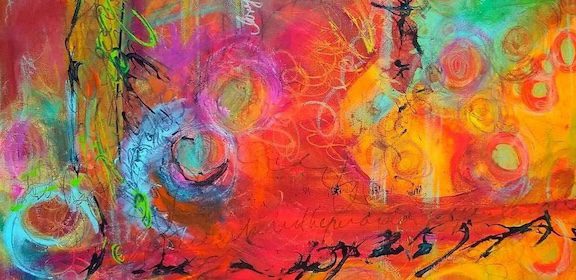Professional Identity Formation Isn’t Optional: Why It Matters in CPE and Burnout Prevention
One thing I’m consistently aware of in supervision is how risky caring professions can be for burnout, especially among new practitioners. While the workload is certainly significant, the more common source of burnout is role confusion. When practitioners lack professional identity formation and a grounded sense of who they are in the work, they’re more likely to over-function, lose boundaries, and absorb suffering in ways that hollow them out.
That’s why Clinical Psychospiritual Education matters so much for chaplains, spiritual care providers and ministers, and why academic institutions offer credit. We’re not just training people to provide care. We’re forming a professional identity that can hold the weight of compassion. The education is the prevention. For me, identity formation sits at the heart of my clinical training program.
Why Compassion Fatigue Isn’t Just About Workload
During the pandemic, I think every healthcare practitioner became intimately familiar with compassion fatigue. We were living it in the hospital every day, carrying the fear, sadness, and despair of the people and families we were caring for. Our entire humanity was pulled into caring, saving, rescuing, doing, being.
But that’s only part of the story. The deeper vulnerability for helping professionals often stems from how we identify with the work.
When your identity as a caregiver is fused with being endlessly available, constantly competent, or always self-sacrificing, you become wide open to depletion. This is often called the “saviour complex”, something many ministers and healthcare workers carry. Depletion doesn’t happen because you’re weak, but because the role you’ve internalized feels noble, and doesn’t leave space for your own limits, needs, or humanity. And let’s be honest, this is often a theological problem too.
Without a defined, spacious professional identity, one that includes boundaries, voice, and self-awareness we can tend to confuse overextension with dedication. That confusion drives people straight into burnout.
How Professional Identity Functions as a Protective Factor
A clear, integrated professional identity gives people something to stand on when the work gets heavy. It becomes a framework for making decisions, setting boundaries, and staying connected to purpose, especially in high-stakes or emotionally charged environments.
Practitioners with a solid sense of who they are in the work are less likely to over-identify with clients, transfer emotional weight, or internalize unrealistic expectations from themselves or their systems.
Identity creates containment. When someone can say, “This is mine to hold, and this is not,” they can show up fully without dissolving into the work. That’s sustainable and differentiated compassion.
This is also where systems theory becomes critical. It helps us understand that when we stop carrying everyone else’s emotional load, the people around us may react. And it will impact our relationships, leading to discomfort or resistance as we set boundaries. That discomfort is part of the learning. It doesn’t mean we’re doing it wrong. It means we’re doing the deeper work. Knowing that in advance is so important!
Why CPE Centers on Identity Formation
Clinical Psychospiritual Education is so much more than learning techniques. It’s about forming a person who can offer care without losing themselves in it. The demands of spiritual care and psychotherapy are existential. We are asking people to bring their whole selves to the work, which is exactly what makes it sacred.
But when the “self” is undefined or unexamined, it becomes over-identified with the helper, the saviour, the fixer. And that’s when we start to disappear and our health is at risk.
CPE gives us an essential opportunity to explore, name, and shape professional identity. It invites the questions:
* Who are you in this work?
* What is your unique contribution?
* What do you bring to the encounter?
* Where do you end, and the other begin?
We’re preparing people to care—and we’re helping them develop the endurance, clarity, and boundaries that will serve them throughout their careers.
The Value of CPE for Helping Professionals
CPE is transformational learning. It offers space to wrestle with the tensions of care: and there are many tensions we all expereince as caregivers. We want to be present and we also want a rest, we want to be compassionate and yet we are often on the verge of compassion fatigue. We want to honour vulnerability, and yet we are also called to be the voice of protection. Learning these aspects of oneself in a group is an opportunity to hear who you are reflected back to you, so you can begin to recognize and own what resonates.
For helping professionals to do this work well (and keep doing it without burning out!) They need more than skills. They need a sense of self that can be flexible in times when people are looking for a steady holding place rooted in reasonable boundaries.
That’s the gift of CPE: not just learning how to care, but learning how to stay whole while caring.
Because when the practitioner is grounded, the care is sustainable. And everyone, including clients, patients, teams and systems benefits from that.
If you are interested in learning more about Clinical Psychospiritual Education, visit spiritualcare.ca to learn more and find a program near you.
If you are a practitioner who needs help exploring your professional identity for stronger resilience in your work, please reach out for 1:1 therapy or coaching.
Art by Lawren Harris, Group of Seven







